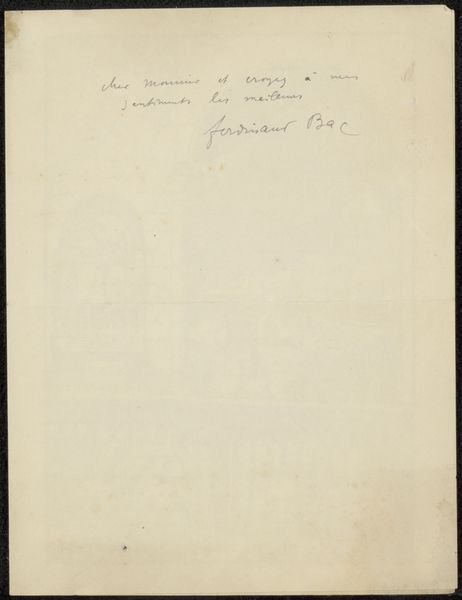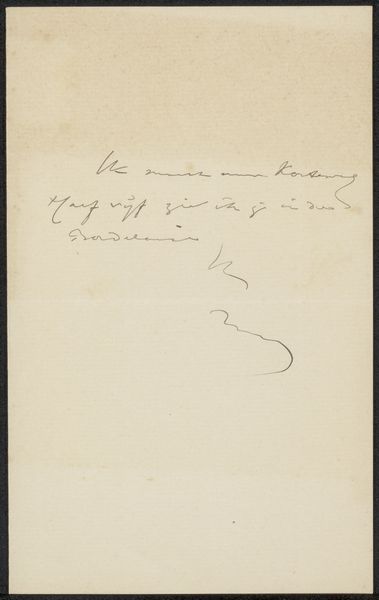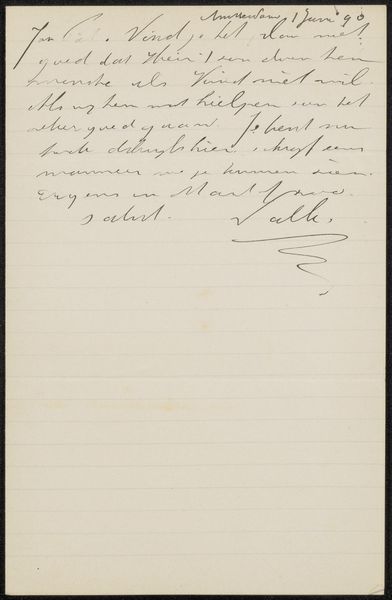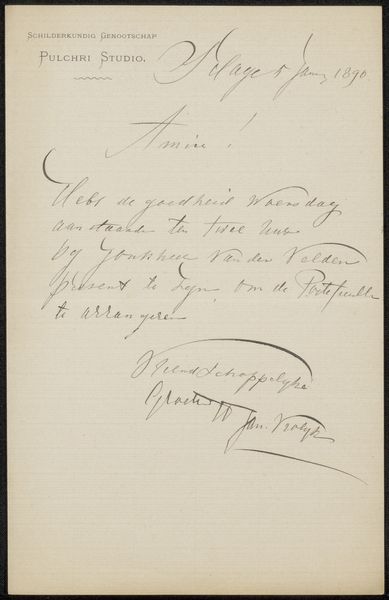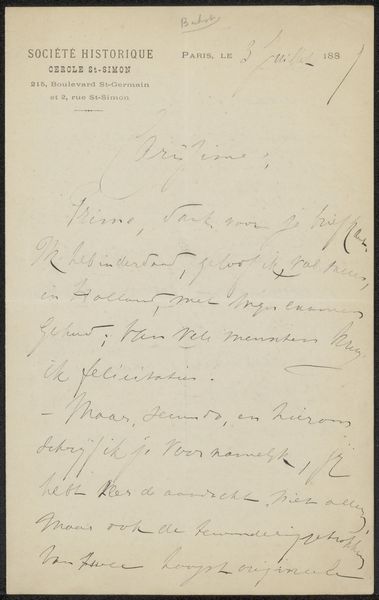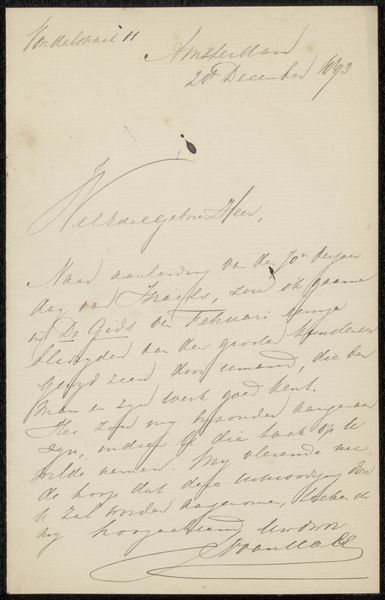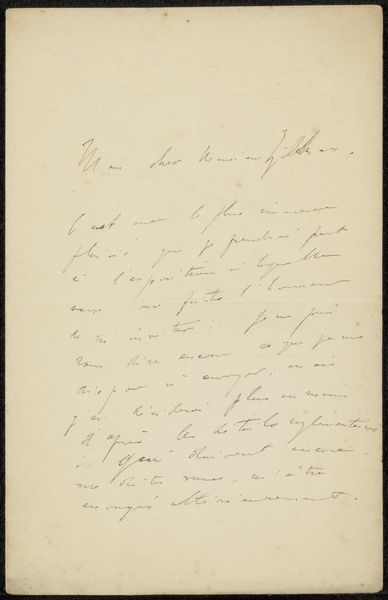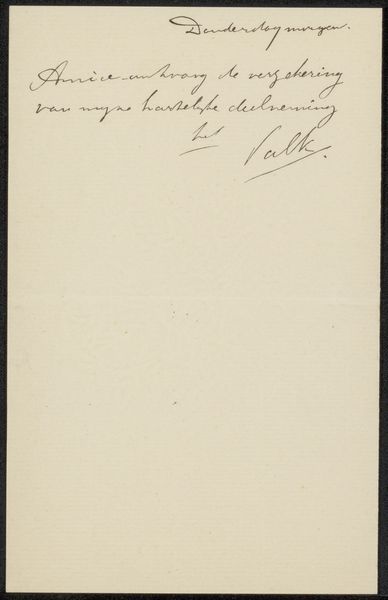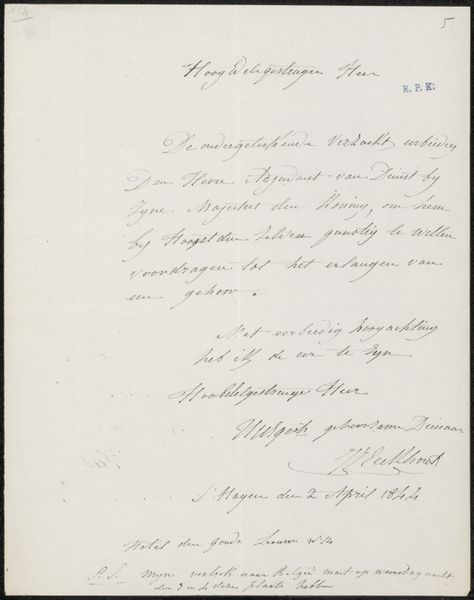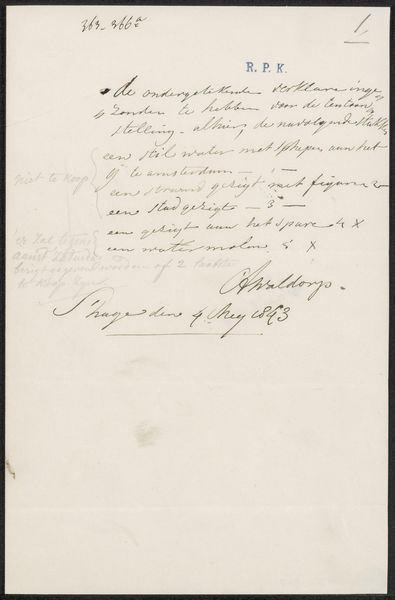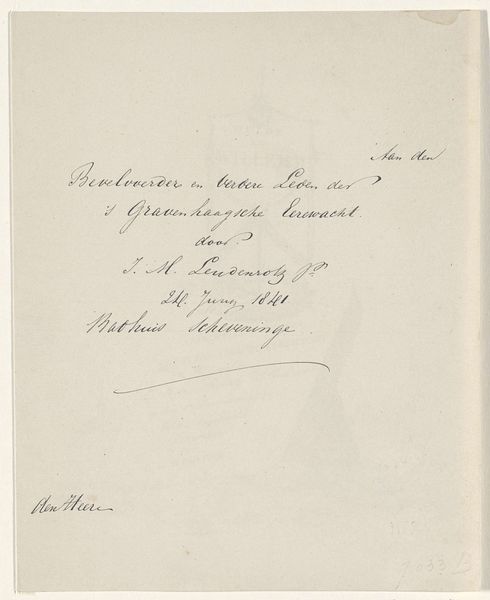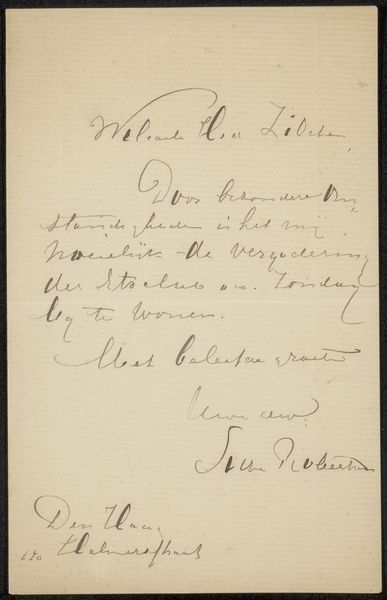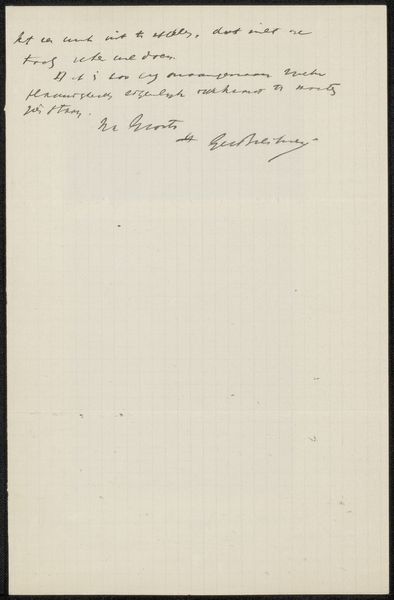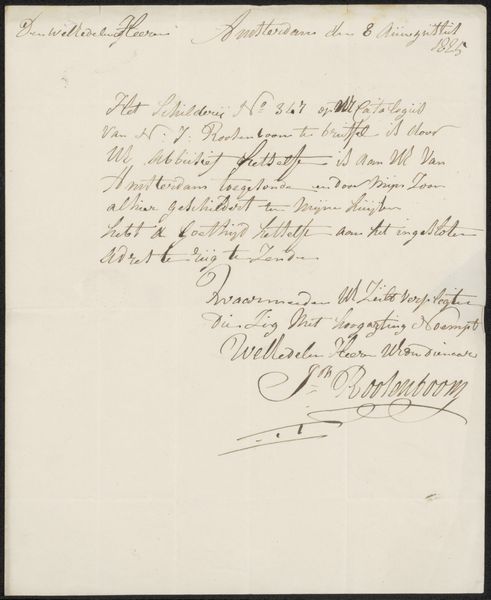
drawing, paper, ink, pen
#
drawing
#
ink paper printed
#
old engraving style
#
hand drawn type
#
paper
#
personal sketchbook
#
ink
#
hand-drawn typeface
#
ink drawing experimentation
#
intimism
#
pen-ink sketch
#
ink colored
#
pen work
#
sketchbook drawing
#
pen
#
calligraphy
Copyright: Rijks Museum: Open Domain
Curator: Looking at this artwork called “Gedichten uit archief Philip Zilcken”, which translates to "Poems from the Philip Zilcken Archive," it feels like stumbling upon a very intimate note, maybe even a relic of someone's deepest thoughts. Editor: My initial sense is quiet reverence. The paper's aged quality and the delicate penmanship lend it an aura of the past. It speaks of a world that prioritized thoughtfulness. The text is placed at the top, creating a large space beneath, suggesting it could almost be a prelude. Curator: That's funny, I see an exercise in form. Like the words are there almost as texture, or simply as an expression of pure, flowing movement, with all those looping flourishes and cursive energy. Did he write that in ink, maybe a quill, perhaps in his own sketchbook? Editor: Most likely with pen and ink on paper. But let's situate this "intimacy." Zilcken was a Dutch art critic, writer, and artist around the turn of the century. The act of archiving "poems" already gestures to the complexities of what constitutes literature or art, and by extension, who gets to decide, right? Who makes the archive? Whose stories survive? This feels like a carefully considered statement, not simply an aesthetic indulgence. Curator: You always take it there, don't you? The idea of legacy makes me think of it as perhaps less precious than I had initially surmised. To create a collection of writings, maybe these weren't his truest of sentiments then? He could have well intended it as simply an impression for himself. Just a doodle of his thoughts. Not intended for someone to study at a later point. Editor: Perhaps both can be true! Zilcken, in deciding to preserve this text, implies a belief in its future relevance. His work invites us to challenge how historical narratives are created. It forces us to acknowledge subjectivity in constructing a literary or historical legacy. Curator: All those elegant letterforms dancing across the page are an important piece of evidence I believe. In the grand library of thoughts left unspoken and pages left unturned, there is still beauty that rises and inspires! Editor: Precisely. By considering these elements within the context of its time, we may begin to decode both the obvious and subtle narratives embedded within the choices made in presenting such personal works of expression.
Comments
No comments
Be the first to comment and join the conversation on the ultimate creative platform.
